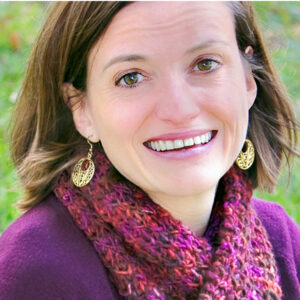
Learning from the discomfort of being a guest
One recent Saturday afternoon, I visit the Hindu Temple of Atlanta in Riverdale, Georgia, for a conversation with one of the priests about my current research. I spend time walking through both the Vishnu and the Shiva temples, appreciating the various deities and trying to embody a respectful posture as devotees and priests go about their ordinary acts of devotion. I feel both familiarity and discomfort. I recognize the rituals and much, if not all, of the iconography, and I am interested to see what has changed since the last time I visited. People are hospitable, welcoming me and my spouse without overwhelming us. At the same time, I am aware of my own identity, not being a practicing Hindu, or a South Asian person. In this space, I am aware of being hyper-visible, of being obviously a visitor, an observer rather than a full participant in the life of the community.
What is to be learned from the experience of being a guest? Maybe the slight discomfort itself is valuable learning: the feeling of being uncertain, an interested outsider in a space that will never be my own. I recognize that the discomfort comes from not being “at home,” being a guest rather than a host.
Of course, being a guest can be more uncomfortable than my temple visit. As guests in other people’s homes, sometimes we are offered food that is not palatable to us. We may not receive what we regard as enough to eat, or we may be expected to eat more than is comfortable. We may not be comfortable in the bed, or with the patterns of sleeping and rising.
This discomfort of being a “guest” has helped me think afresh about the complexity of racial dynamics in institutions. Being a guest makes me aware of how difficult and how vital it is to make people welcome, to consider what is needed to be truly comfortable in a new place. In a recent blog, Lynne Westfield reflects on how BIPOC faculty do not always feel welcome in predominantly white institutions (PWI). She reports, “the majority of BIPOC colleagues who leave employment after less than three years report that their reason for leaving hinges upon experiences of being treated inhospitably.” How might my experience of being a guest help me to be more hospitable to colleagues who feel always like a “guest,” never quite at home?
In my current research, I am asking: what does it mean to offer to and receive food from a deity in Hindu (particularly Vaishnava) and Christian contexts? I am investigating the dynamics of offering puja (worship) and receiving prasada (blessed food) in Vaishnava practice, in comparison with the giving and receiving of food in Christian eucharist. In both cases, the guest/host dynamic is complex: for Vaishnavas, Vishnu is treated explicitly as guest, offered water and food and clothing to be comfortable and welcome. Devotees treat Vishnu as a guest so that he feels loved and cared for. Yet underlying this treatment is the understanding that Vishnu is also the creator of all things, the one who is ultimate Host.
On the Christian side, there is more emphasis on Christ as host at the table (thus the very term “Lord’s Supper” as one name for the eucharist). God in Christ offers life, offers food to us, as the host of the feast. Yet in the gospel narratives of his life, Jesus is always a guest in other people’s homes, and narratives like Luke 24:13-35 explicitly present Jesus as guest who becomes host.
In both cases, worshipers play the role of host, but not in an ultimate way. In both cases there is a delicious reversal of expectation of who is guest and who is host.
How might such role reversals also be instructive? After all, just as we need to learn to be good hosts, so also we need to learn to be good guests. In her poem “Sakhi” (“close friend” or “bosom friend”), Indian Dalit poet Hira Bansode describes her initial delight at hosting a high-caste friend for dinner. However, her guest “smirks” at the food on the plate and complains that Bansode failed to serve buttermilk or yogurt at the end of the meal as expected. “I was sad then numb,” says Bansode. “But the next moment I came back to life. / A stone dropped in the water stirs up things on the bottom.” Bansode tells her “friend,” “You know in my childhood we didn’t even have milk for tea much less yoghurt or buttermilk / My mother cooked on sawdust she brought from the lumberyard wiping away the smoke from her eyes.” She defiantly concludes, ‘Are you going to tell me my mistakes?”
Being a guest (and learning to be a good guest) has also informed my reflections on being a teacher. In the classroom, I am usually the “host,” setting the environment and the plan for the learners. But if being a guest can bring discomfort, how might this also be true for students? Does Vishnu, and does Jesus, offer wisdom in modeling what it means to be a good guest, allowing others to live into their roles as hosts? Perhaps this is exactly what collaborative learning processes help us to practice: taking turns being host and being guest in the classroom, so that all may feel truly welcome.
Leave a Reply